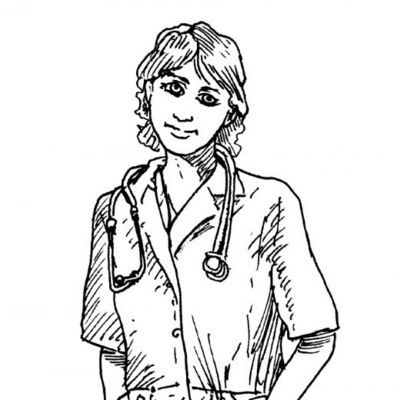The Desperate Journey
Hundreds of families have flocked to Colorado hoping medical marijuana will relieve their children’s epileptic seizures. This is the story of one family’s migration.
Hundreds of families have flocked to Colorado hoping medical marijuana will relieve their children’s epileptic seizures. This is the story of one family’s migration.
John Ingold The Denver Post Dec 2014 10min Permalink

Daniel Kish is entirely sightless. So how can he ride a bike on busy streets? Go hiking for days alone? By using a technique borrowed from bats.
Michael Finkel Men's Journal May 2012 25min Permalink

Best Article Politics Science Religion
Inside the political battle over reproductive rights in Texas a decade ago.
Mimi Swartz Texas Monthly Aug 2012 35min Permalink
An internet huckster got rich selling a sex enhancement supplement named Stiff Nights. Then the FDA sampled his wares.
Matthew Hongoltz-Hetling The New Republic Jun 2021 30min Permalink

“It is a beautiful hand: strong, with long, slender fingers and smooth skin, its nails ridgeless and pink. If you didn’t know Jonathan Koch—if you first met him, say, on the courts at the Calabasas Tennis & Swim Club—you might not suspect that his hand previously belonged to someone else.”
Amy Wallace Los Angeles Mar 2017 35min Permalink

What the sensation of uncontrollable itch and the phantom limbs of amputees can tell us about how the brain works.
Atul Gawande New Yorker Jun 2008 30min Permalink
Deer can regrow their antlers, and humans can replace their liver. What else might be possible?
Matthew Hutson New Yorker May 2021 20min Permalink
Thousands of patients report lingering symptoms. Can research into another mysterious syndrome help?
The Canadian scapegoat of the AIDS epidemic.
Guy Babineau Xtra West Nov 2007 20min Permalink
If something isn’t done now, antibiotic-resistant bacteria could kill as many as 10 million people a year by 2050.
Maryn McKenna Boston Globe Magazine Aug 2020 20min Permalink
A cri de cœur on AIDS: “If we don’t act immediately, then we face our approaching doom.”
Larry Kramer New York Native Mar 1983 25min Permalink

The life and work of a Manhattan psychoanalyst.
Janet Malcolm New Yorker Nov 1980 1h10min Permalink
How New Jersey’s first coronavirus patient survived.
Susan Dominus The New York Times Magazine Apr 2020 25min Permalink
How the Ebola outbreak spread.
Jeffrey E. Stern Vanity Fair Oct 2014 20min Permalink

On the shared life of Tatiana and Krista Hogan:
The girls’ doctors believe it is entirely possible that the sensory input that one girl receives could somehow cross that bridge into the brain of the other. One girl drinks, another girl feels it.
Susan Dominus New York Times Magazine May 2011 25min Permalink

On the centuries-long search for the perfect hangover remedy.
Joan Acocella New Yorker May 2008 20min Permalink
A healthcare nightmare.
Molly Osberg Splinter Jan 2018 15min Permalink
We aspire to a life without discomfort, without unpleasantness. But what kind of life would that be? It is as hard to imagine a world without pain as a person without sadness: a whole dimension of existence would be missing.
Sophie Elmhirst 1843 Oct 2019 20min Permalink

“The gun debate would change in an instant if Americans witnessed the horrors that trauma surgeons confront everyday.”
Jason Fagone Huffington Post Highline Apr 2017 30min Permalink

On medical acting and real pain.
Leslie Jamison The Believer Feb 2014 35min Permalink

On being the parent of a micro preemie.
A daughter is born, four months too soon.
Juniper’s first few weeks.
Miracles, in little pieces.
Kelley Benham The Tampa Bay Times Dec 2012 1h20min Permalink
Why doctors hate their computers.
Atul Gawande New Yorker Nov 2018 35min Permalink
How Viagra went from a medical mistake to a $3 billion industry.
David Kushner Esquire Aug 2018 15min Permalink
At 18, Katie Stubblefield lost her face. At 21, she became the youngest person in the U.S. to undergo the still experimental procedure to get a new one.
Joanna Connors National Geographic Aug 2018 40min Permalink
Each year, about 50,000 women are severely injured giving birth. Half of these injuries could be reduced or eliminated with better care.
Alison Young USA Today Jul 2018 20min Permalink